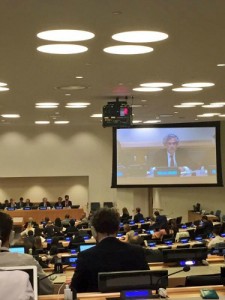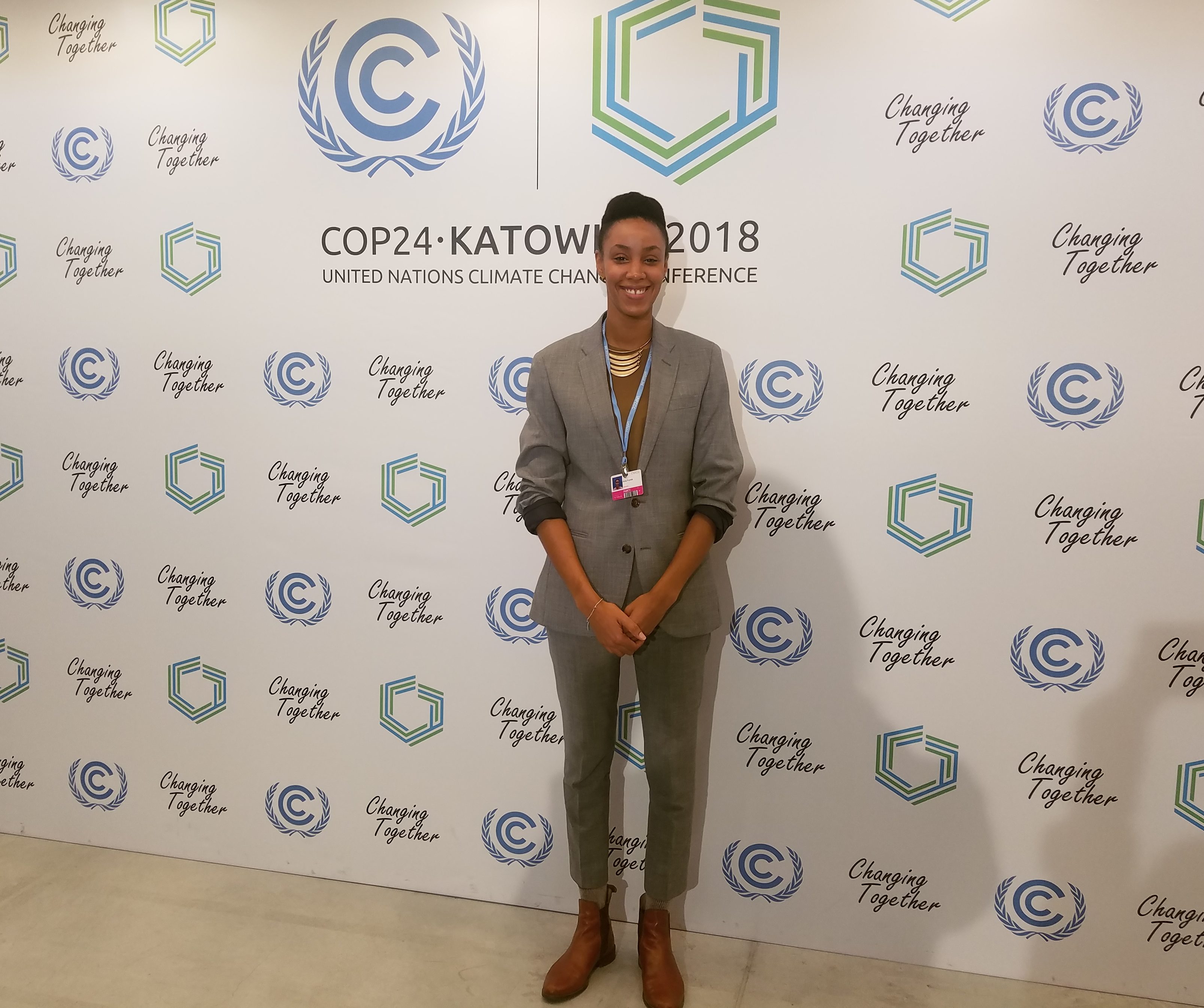New York, July 2, 2015—The U.N. Security Council could take action to help the world prepare for and cope with future mass displacement caused by climate change, Columbia Law School Professor Michael B. Gerrard, director of the Sabin Center for Climate Change Law told the international body in a June 30 presentation.
Climate change-related sea level rise and loss of food and water security could result in tens or hundreds of millions of people being displaced from their countries by the end of the century, Gerrard said, far more than the estimated 60 million people currently displaced because of war, conflict, and persecution. And climate change refugees face a unique challenge: for many of them, their displacement is most likely permanent.
“While the people who are currently displaced by conflict will hopefully be able to return home some day, the people from areas swallowed by rising seas will never be able to go back,” Gerrard said.

The Permanent Missions of Spain and Malaysia invited Gerrard, one of the world’s foremost experts on climate change law and policy, to address the special closed-door meeting at the U.N. headquarters in New York. Gerrard outlined the Security Council’s options for action under Article 39 in Chapter VII of the U.N. Charter, which states that the council “shall determine the existence of any threat to the peace, breach of the peace, or act of aggression and shall make recommendations, or decide what measures shall be taken… to maintain or restore international peace and security.”
Gerrard said the council could evaluate whether displacement poses a genuine threat to peace, and, if so, launch an effort aimed at minimizing and coping with refugees.
“This effort could start an international process of sound planning before a grave crisis actually begins,” Gerrard said. “It could also spark recognition of the need for significantly greater efforts at mitigation. Climate change offers the Security Council the opportunity to be proactive in preventing threats to the peace.
Gerrard spoke on a panel with U.N. Deputy Secretary-General Jan Eliasson; Tony DeBrum, the Minister of Foreign Affairs of the Republic of the Marshall Islands; Hindou Oumarou Ibrahim, Coordinator of the Association for Indigenous Women and Peoples of Chad; and Pelenise Alofa, Exective Director for the Kiribati Climate Action Network. The program was chaired by the Permanent Representatives to the U.N. of Spain (Roman Oyarzun) and of Malaysia (Ramlan Bin Ibrahim).
The Sabin Center plans to post a detailed paper with supporting materials and documentation outlining possible mechanisms for how the Security Council might address climate change displacement.
Columbia Law School student Dane Warren ’17 conducted research for Gerrard’s presentation.
Gerrard also recently wrote an opinion piece on the subject for The Washington Post.
Read the full text of Gerrard’s U.N. Security Council remarks.
Read the full text of Gerrard’s Post opinion piece.



